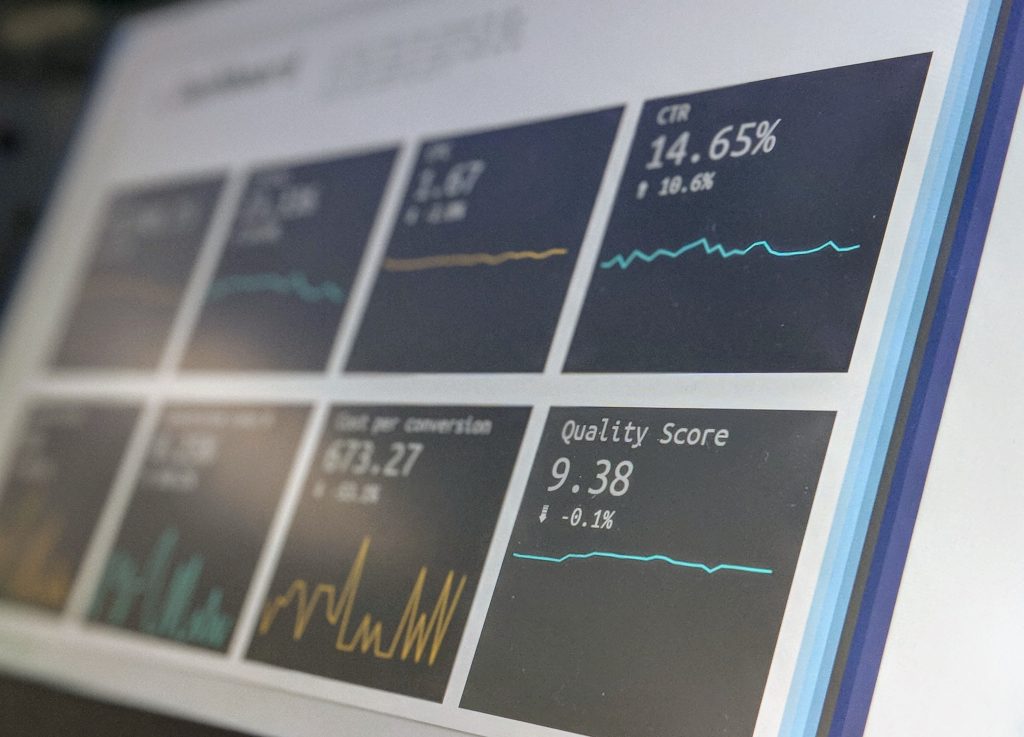Search Engine Optimization, or SEO, is an important part of our daily lives.
Today, most of us use search engines to find what we need, whether a solution, concept, plan of action, or service.
Every day, 8.5 billion searches are made on Google alone.
Therefore, just as search engines have become essential to our lives, so too have incorporated many business marketing methods.
In fact, 67% of content marketers say SEO is their most efficient tactic.
Search engine optimization, or SEO, is how marketers leverage organic search as a marketing channel.
Organic search is simply a fancy word for standard, non-ad search engine results.
How, then, can you harness the potential of search engines to expand your brand?
You’ll discover everything you need to know about SEO in this comprehensive guide to rank higher on Google, increase website traffic, and enhance your brand’s reputation.
What is SEO?
Search engine optimization, or SEO, is a set of techniques to enhance the look and positioning of web pages in natural search results.
Organic search is the most popular method for users to find and access online information.
So, having a solid SEO strategy is crucial for increasing the quality and volume of visitors to your website.
By presenting material satisfying user search needs, search engines suggest SEO actions that help the user search experience and the page’s rating.
This comprises the use of pertinent keywords in page titles, meta descriptions, and headlines (H1), descriptive URLs that contain keywords rather than a list of numbers, and schema markup to explain the meaning of the page’s content.
Read: Revolutionize Your SEO Strategy with AI-Based Tools

How Does SEO Work?
While it is possible to increase results, it is almost impossible to control search algorithms completely.
Businesses frequently seek the quickest route to optimal outcomes with the least effort.
But SEO calls for a significant amount of effort and time.
There is no SEO approach where changes can be made today, and results are expected to show up tomorrow.
Long-term SEO projects require daily work and ongoing activity.
All website pages are analyzed by search engine bots, which download and store the data in a collection called an index.
When someone searches for something in this index, which is similar to a library, the search engine serves as the librarian.
Users are shown content connected to what they are looking for once the search engine pulls and displays pertinent information from the search query.
Search engine algorithms examine the web pages in the index to decide which pages should appear in what order on the SERP.
Read: Top 5 Keyword Optimization Tips To Boost Your SEO Strategy
What Algorithms Evaluate for Search Engine Optimization?
Several criteria determine the material from the index displayed in a SERP.
However, they combine into five essential elements that influence the search query’s result output.
Meaning of the query
The algorithm must first determine what information the user is looking for to return relevant results.
We call this having intent.
The algorithm seeks to comprehend language to understand intent.
Its ability to discern searcher intent depends on its ability to interpret spelling errors and synonyms.
It also depends on the fact that some words imply different things in different contexts.
For instance, search engines would need to be able to tell a bass from a bass fish or a bass from a bass instrument.
To provide the right information, the intent would be based on other search terms, such as historical search, geographical search, and more.
Relevance of webpages
The algorithm examines the content of webpages to determine whether the sites include information pertinent to the user’s search.
We Design & Develop Websites, Android & iOS Apps
Looking to transform your digital presence? We specialize in creating stunning websites and powerful mobile apps for Android and iOS. Let us bring your vision to life with innovative, tailored solutions!
Get Started TodayThis happens after determining the intent.
The presence of the search terms on the webpage would be a fundamental indicator of relevance.
This includes appearing in the page headings or the body material.
Search engines employ aggregated interaction data and keyword matching to decide whether the page is pertinent to the search query.
This checks anonymised search history to see if the page matches the query.
Quality of the content
Search engines aim to give preference to the most trustworthy sources accessible.
The algorithms’ intelligence allows them to recognise knowledgeable, credible, and authoritative pages in connection to the intended use.
Usability of webpages
Search engine rankings are heavily influenced by website usability and design.
The system considers the way a site looks in various browsers, whether it’s optimised for multiple device types, including PCs, tablets, and phones, and whether slower internet connections can still access it with ease.
Context and settings
To help identify which results are most helpful to a user at that particular time, search engines and their algorithms incorporate data from past search history and search parameters.
It is possible to give content pertinent to the area from where someone is searching using their country and location.
For instance, if you type in “football” in England, you’ll receive different results than searching for it in America.
Read: SEO Best Practices For Youtube Everyone Should Use

Why is SEO Important?
To understand the value of SEO, let’s break our definition into three parts:
Organic search results
These are the unpaid listings on a search engine results page (SERP) that the search engine has determined are most relevant to the user’s query.
Many SERPs contain a sizable amount of adverts, more specifically, PPC or pay-per-click ads.
In contrast to these adverts, organic search results are positioned according to the search engine’s organic ranking algorithms rather than advertiser bids.
You cannot purchase a higher position for your page in organic search results.
Quality of organic traffic
How closely does the user’s search query match the content on your website?
You can get all the visits you want.
But if people arrive on your site believing you to be an Apple computer resource when, in reality, you are just a farmer selling apples, they’re likely to depart without making a purchase.
Only people who are interested in the goods, data, or other resources your site provides constitute high-quality traffic.
High-quality SEO takes advantage of the search engine’s efforts to match a user’s search intent to the web pages presented in the SERP.
Quantity of organic traffic
This is the number of visitors who arrive at your website through natural search results.
Because search results near the top of the SERP are far more likely to be clicked on by users, it’s critical to employ your SEO strategy to rank relevant pages as high as possible.
You are more likely to notice an increase in worthwhile conversions if you draw more highly qualified visitors to your website.
Read: AI-Powered SEO Content Creation: Boost Traffic with Advanced Tools
Conclusion
Increasing your position in organic search results is the aim of SEO.
There are different practices for optimizing AdWords, shopping, and local results.
Although there seem to be too many competing factors vying for space on SERPs, pushing the organic rankings down, SEO can still be a very effective and profitable strategy.
Google handles billions of search queries daily.
So, organic search results represent a pretty sizable portion of the pie.
To acquire and maintain organic rankings, some initial and continuous expenditure is necessary.
But every click that directs visitors to your website is free.
Before You Go…
Hey, thank you for reading this blog post to the end. I hope it was helpful. Let me tell you a little bit about Nicholas Idoko Technologies.
We Design & Develop Websites, Android & iOS Apps
Looking to transform your digital presence? We specialize in creating stunning websites and powerful mobile apps for Android and iOS. Let us bring your vision to life with innovative, tailored solutions!
Get Started TodayWe help businesses and companies build an online presence by developing web, mobile, desktop, and blockchain applications.
We also help aspiring software developers and programmers learn the skills they need to have a successful career.
Take your first step to becoming a programming expert by joining our Learn To Code academy today!
Be sure to contact us if you need more information or have any questions! We are readily available.
Put Your Tech Company on the Map!
Get featured on Nicholas Idoko’s Blog for just $200. Showcase your business, boost credibility, and reach a growing audience eager for tech solutions.
Publish Now









